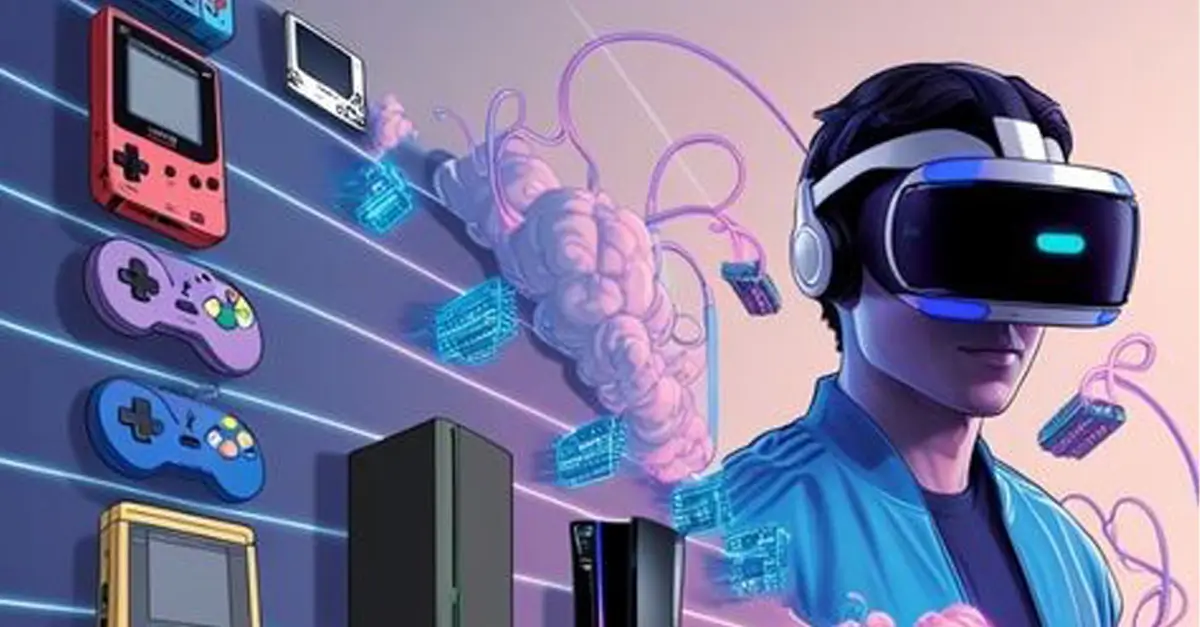The Future of PC Gaming: A New Era Unfolds
A Shift Beyond Hardware
The realm of PC gaming is undergoing a quiet but profound transformation. Where once raw hardware power was the ultimate benchmark for gamers, a new paradigm is emerging—one shaped by cloud technologies , artificial intelligence , and the reinvention of game development models. This evolution is not only redefining the player’s experience but also reshaping how games are made, delivered, and consumed.
At the core of this shift is cloud gaming , which promises to decouple performance from physical components. With powerful servers doing the heavy lifting, even modest laptops can now render high-fidelity gaming experiences previously reserved for top-tier machines. This means games are no longer limited by the user's local device, creating a democratized access to rich virtual worlds that once demanded expensive upgrades.
Cloud Gaming and the Rise of Streaming
Cloud-based game streaming is more than a convenience—it's a harbinger of a decentralized future. Gamers can seamlessly play across multiple devices, continuing their sessions from desktops to tablets without compromising on visual or gameplay quality. With low-latency streaming and evolving compression technologies, the line between local and remote play is blurring rapidly.
As this model matures, it challenges the traditional norms of ownership. Players may subscribe to vast libraries rather than purchasing single titles, much like the evolution of music and film consumption. Developers, in turn, gain the ability to instantly update and optimize games across the board, fostering a more connected and responsive ecosystem.
Artificial Intelligence: Breathing Life Into Worlds
The integration of artificial intelligence into gaming is redefining immersion. Gone are the days of scripted, repetitive NPC behavior . Instead, AI enables characters to learn, adapt, and respond dynamically to player actions. Imagine a world where allies and enemies evolve over time, where every encounter feels fresh and unique, and where narrative depth arises not from pre-written dialogue, but from emergent interactions shaped in real time.
Moreover, AI is becoming a silent co-creator in game development , handling tasks such as bug detection, pathfinding, and even dialogue writing. This allows developers to focus more on creativity while reducing development time and costs. The result: richer, more complex experiences delivered faster than ever before.
Procedural Generation: Infinite Possibilities
Procedural generation is another frontier propelled by advances in AI and computational design. This technique uses algorithms to build expansive, unpredictable game worlds , ensuring that no two players ever encounter the same terrain, architecture, or storyline. With each run-through offering fresh content, replayability soars.
This approach is more than a technical novelty—it’s a philosophical shift. Game designers move from crafting static environments to designing systems that generate worlds of limitless variation. Players are no longer confined to the vision of a single artist but explore living landscapes that feel organic and ever-evolving.
New Trends: From Player to Participant
Beyond technological breakthroughs, trends are emerging that place the player at the heart of the gaming narrative. With the aid of machine learning , games now analyze player decisions to tailor experiences that align with personal playstyles. Some games adjust difficulty on the fly, while others dynamically reshape story arcs, making the player not just a participant but a co-author.
This personalization creates deeper emotional connections, increasing immersion and longevity. Coupled with advances in virtual interaction , including voice recognition and gesture control, games are becoming more intuitive and expressive. The boundary between reality and simulation continues to dissolve.
The Road Ahead
The synergy of cloud computing , AI , and procedural techniques paints an exciting future for PC gaming . As these innovations converge, they promise a future where anyone, regardless of device or location, can access sophisticated, tailored experiences that respond, evolve, and even learn alongside the player.
We stand at the edge of a new digital renaissance—one where technology doesn’t just serve the game, but becomes part of the game itself. In this world, players are no longer confined by limitations but empowered by possibility. The future of PC gaming is not a single path, but a million procedurally generated ones, waiting to be discovered.

